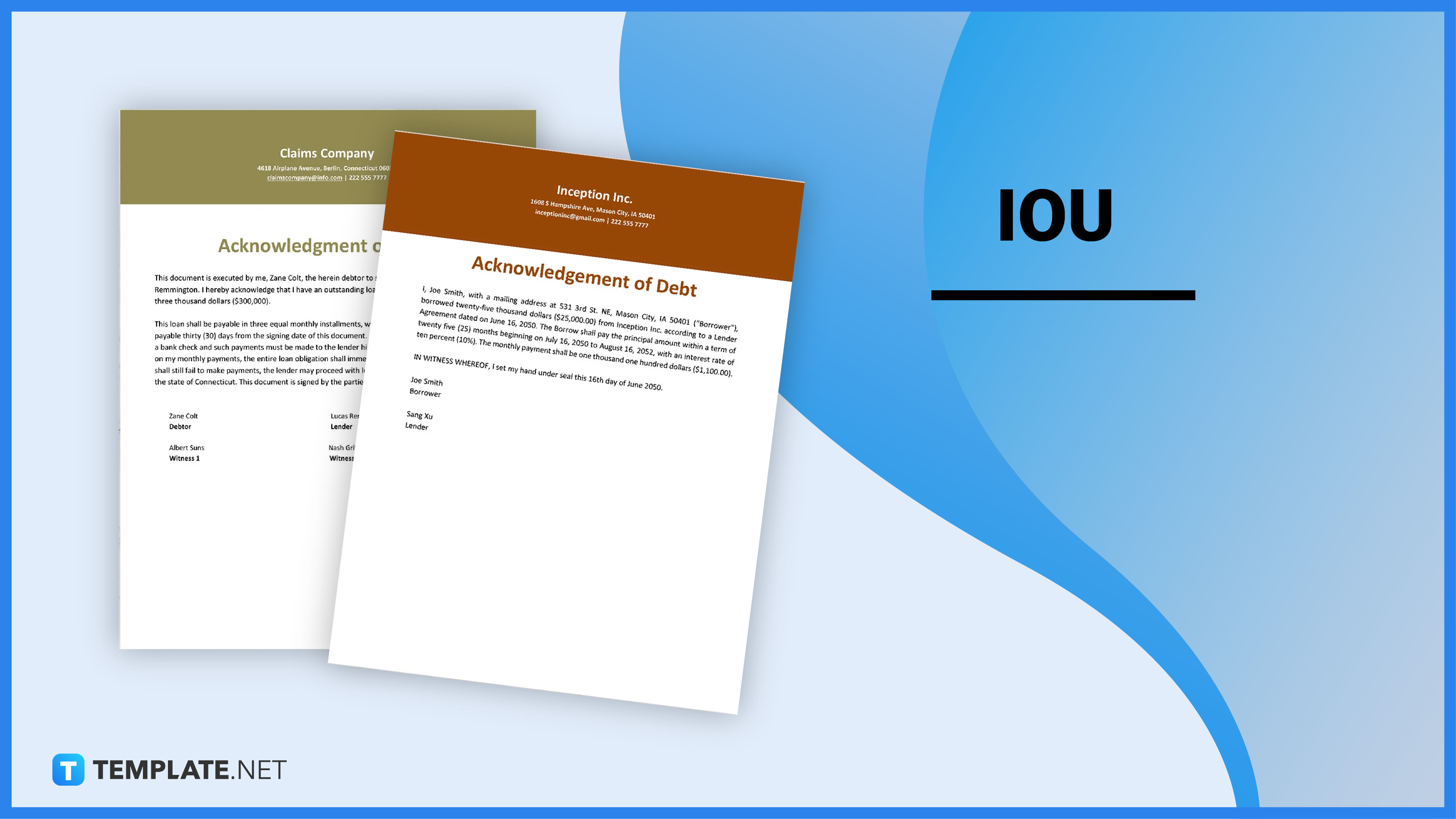Understanding IOU In Finance: A Comprehensive Guide
In the intricate world of finance, the term "IOU" holds significant importance, particularly in informal lending and credit. An IOU, which stands for "I Owe You," is a simple acknowledgment of a debt owed by one party to another. It's a versatile financial instrument that can range from personal loans between friends to more formal obligations in business transactions. Understanding the nuances of IOUs can greatly enhance one's financial literacy and awareness, especially in managing debts effectively.
The essence of an IOU lies in its simplicity and clarity. Unlike formal loan agreements that may require extensive documentation, an IOU is often a straightforward written or verbal agreement. This ease of use makes it a popular choice among individuals and businesses alike, particularly in scenarios where trust and mutual understanding prevail. However, despite its informal nature, it's crucial to recognize the potential legal implications and enforceability of an IOU in case of disputes.
As we delve deeper into the concept of IOUs in finance, we will explore various aspects such as their historical context, legal standing, and practical applications. By the end of this article, you will have a comprehensive understanding of what an IOU is, how it functions in the financial landscape, and its relevance in today's economy.
What is an IOU in Finance?
An IOU, or “I Owe You,” is essentially a document that serves as a written acknowledgment of a debt. It represents a promise to repay a specified amount of money to another party, whether it be an individual, a group, or an organization. Unlike formal contracts, IOUs tend to be less complex and may not include detailed terms regarding interest rates or payment schedules. They are often used in informal settings, but they can still have legal standing if they meet certain criteria.
How Does an IOU Work?
The mechanics of an IOU are fairly straightforward. When one party borrows money from another, they may issue an IOU to signify the amount borrowed and the obligation to repay it. Here’s how it typically works:
- The borrower writes down the amount owed.
- The borrower may include a repayment date, though it's not always necessary.
- Both parties sign the document, which serves as proof of the agreement.
While an IOU does not usually contain detailed repayment terms, it can still be a useful tool for keeping track of debts and ensuring accountability.
What Are the Legal Implications of an IOU?
Although IOUs are often seen as informal, they can have legal implications. In general, an IOU can be enforceable in a court of law if it meets specific criteria:
- The document must clearly state the amount owed.
- It should include the names of both the borrower and lender.
- A date for repayment, while not always necessary, can strengthen the document.
It’s important to note that the enforceability of an IOU can vary by jurisdiction, so understanding local laws is crucial for both borrowers and lenders.
When Should You Use an IOU?
Using an IOU can be advantageous in various situations, including:
- Informal loans among friends or family.
- Small business transactions where formal contracts may not be practical.
- Situations where trust exists, and both parties prefer a simple acknowledgment of the debt.
However, it's essential to approach IOUs with caution, as they can lead to misunderstandings if expectations regarding repayment aren’t clearly communicated.
Can an IOU Be Transferred?
In some cases, IOUs can be transferred to another party. This means that if the original lender wants to sell the debt, they can assign the IOU to a third party. However, both the borrower and the new lender must agree on the transfer for it to be valid. This practice is more common in business settings than in personal transactions.
What Are the Advantages and Disadvantages of Using IOUs?
Like any financial instrument, IOUs come with their own set of advantages and disadvantages:
Advantages:
- Simplicity: IOUs are easy to create and understand.
- Flexibility: They can be tailored to fit specific situations.
- Low cost: There are usually no fees associated with creating an IOU.
Disadvantages:
- Limited legal protection: IOUs may not hold up in court without clear terms.
- Potential for misunderstandings: Lack of detail can lead to confusion.
- Informality: Not all parties may take an IOU seriously.
How Can You Write an Effective IOU?
Writing an effective IOU involves including key elements that clarify the agreement:
By ensuring these components are present, you can create a more effective and binding IOU.
Conclusion: The Role of IOUs in Personal Finance
In conclusion, IOUs play a vital role in the landscape of personal finance, serving as a simple yet effective means of acknowledging and managing debt. Whether used among friends, family, or in business transactions, understanding the implications and best practices associated with IOUs can enhance financial relationships and foster trust. By being informed about the nature of IOUs in finance, individuals can navigate their borrowing and lending experiences with greater confidence and clarity.
Exploring The Versatile Talent Of John Magaro
Unveiling The Life And Times Of Николь Баффетт
Discovering Marilou York: A Multifaceted Talent



ncG1vNJzZmiqn5i4o77InZ6emqKqtq%2B%2FjaipoGekmrCpus6lpqCxk6S7p7HRnqWcnZiauaV7yKisZqGeYrOqusCnmp5mmKm6rQ%3D%3D
